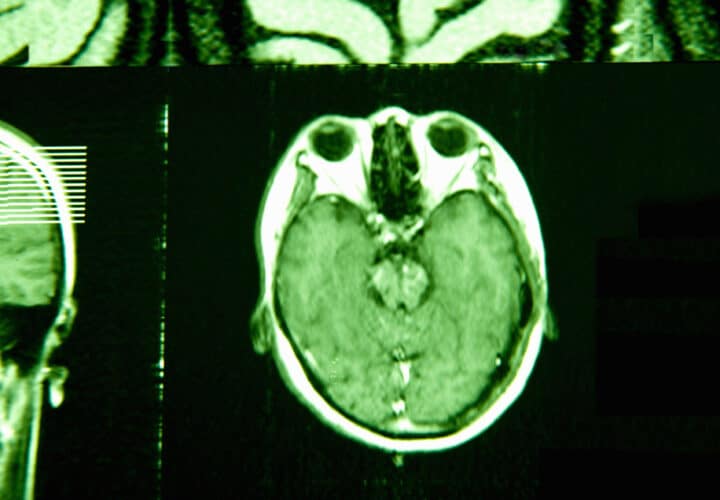To speed up the search for Alzheimer’s treatments and cures, researchers have built machine learning technology to identify existing drugs that could be repurposed — and they’ve found their first candidate: An Eli Lilly arthritis drug called Olumiant is about to enter human trials.
Developing a new drug start to finish can take years — even decades — and cost billions. But, there’s a shortcut: repurposing old drugs for new diseases. Just a few years ago, this would have involved scientists browsing through thousands of compounds on the freezer shelves of the Johns Hopkins Drug Library in Baltimore — home to possibly the largest collection of drugs available to researchers in the world — checking out possibilities, bringing them into lab studies, and testing them against a disease one at a time.
It’s faster than developing a drug from scratch and seeking approval from the Food and Drug Administration on a substance for the first time, but it is still a time-consuming process: If scientists start with the pool of already-FDA-approved, existing drugs in hopes that will speed up the regulatory process, they still have 20,000 drugs to sort through.
With 5.7 million people per year dying of Alzheimer’s and a 99-percent failure rate for disease-modifying drugs in clinical trials, the search for a cure is more urgent than ever, and the drug development community is looking to expedite the process even further. So, taking a page from the warp-speed search for COVID-19 cures, Alzheimer’s drug researchers are turning to artificial intelligence to aid in the search.
Drugs have been repurposed for Alzheimer’s before: In 1995, lamivudine was approved for the treatment of HIV, and two years ago, researchers found evidence that it reversed inflammation and other signs of aging in a mouse study, suggesting it might have some potential for treating neurodegenerative diseases like Alzheimer’s. Meanwhile, later this year, BioXcel Therapeutics hopes to launch Phase 3 clinical trials on a repurposed sedative called dexmedetomidine they believe could treat acute agitation in people with dementia. But because the exact causes of Alzheimer’s still remain a mystery, they hope AI bring this repurposing research to the next level, identifying prospects in greater quantity and at a faster pace.
A new study published in Nature Communications describes the origins of a new clinical trial to test Eli Lilly’s rheumatoid arthritis drug baricitinib, brand name Olumiant, as a potential Alzheimer’s treatment. The researchers at Harvard University and Massachusetts General Hospital who will run the trial originally identified Olumiant by leveraging machine learning to model how neural cells might respond to an array of 80 different drugs, each previously approved by the FDA for different purposes.
The most promising choices as selected by the computer program were janus kinase (JAK) inhibitors and EGFR inhibitors like Novartis breast cancer drug Tykerb and AstraZeneca cancer drug Iressa.
The JAK inhibitors, Olumiant among them, caught the researchers’ attention: JAK proteins are known to fuel inflammation and have been studied for Alzheimer’s links in the past.
Next, the team will conduct human trials of Olumiant at Mass General and Holy Cross Health in Fort Lauderdale, enrolling people with mild cognitive impairment and people who have been diagnosed with Alzheimer’s and studying their response.
If the study yields promising safety and efficacy results, Olumiant will go back to the FDA for approval, reducing what could be decades-long drug development quest to a period of as little as one to two years.





My Mom has Alzheimers and Dementia. Her husband is slowly coming down them also.
I have RA, is in remission. I still take a minimum dose of methotrexate. I am 77 year old woman with a diagnosis of Dysthymia. Would I be a candidate for clinical trial on Olumiant?
Exciting, but the side effects are serious. My first thought was to ask for a prescription ‘ in case it works’, but it is scary stuff.